Spot the Difference: Running a Cafe in Siargao vs. Building a Business in the Metro
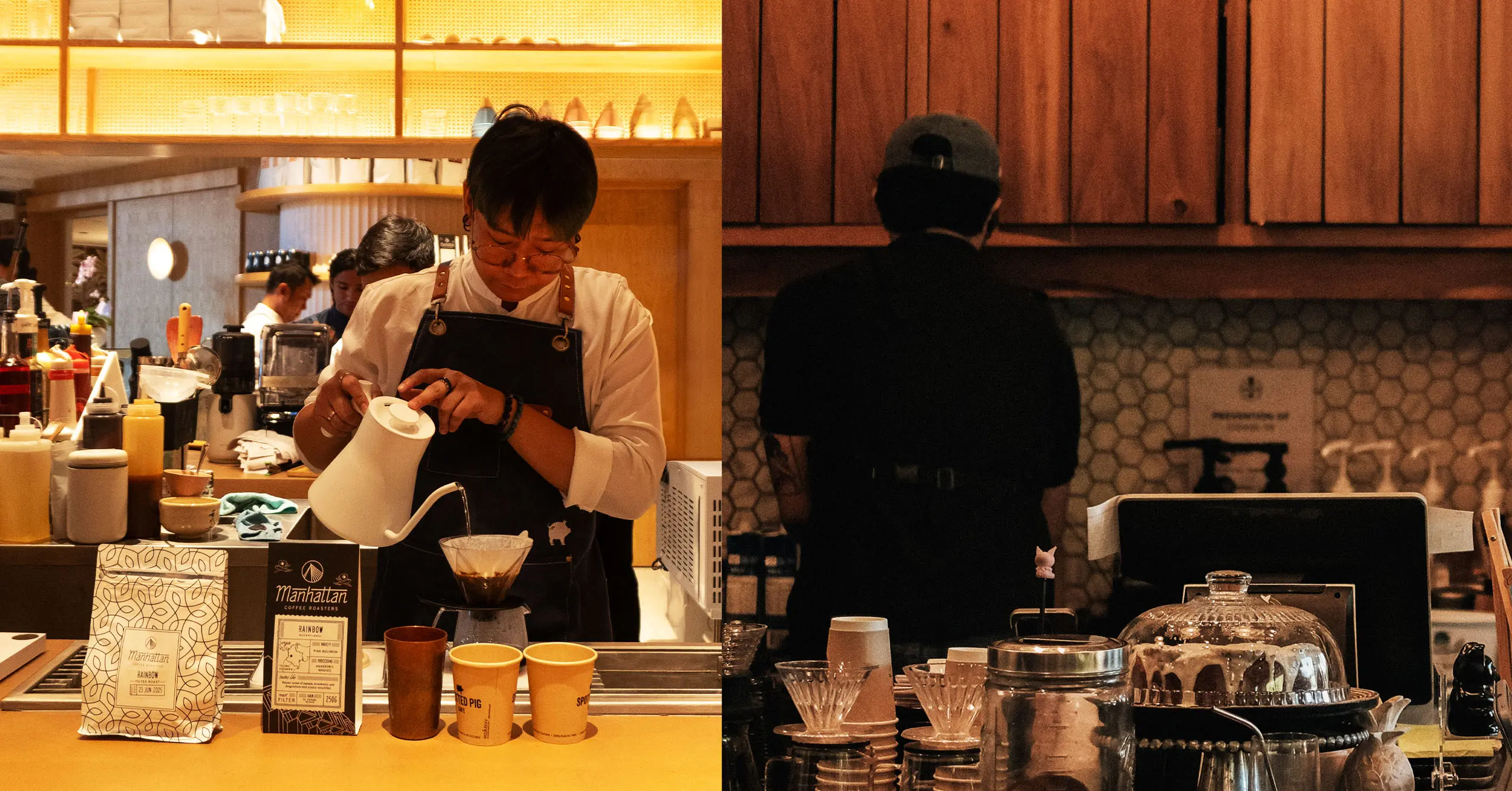
A cafe owner in Siargao decides it’s time to expand in Manila, learning lessons along the way.
One of the joys of traveling is trying local restaurants and cafes you won’t find at home. For many tourists who love Siargao, one such destination is Spotted Pig.
A family-owned business, Spotted Pig has been a go-to for specialty coffee, all-day breakfast, and other delicious comfort food. It has become part of the itinerary of many Siargao-bound tourists.
Patrons based in Metro Manila no longer need to book a plane ticket to the island to enjoy Spotted Pig’s specialties. The cafe has opened two branches in Makati.
In an interview with The Business Manual, owner Isabella Alvarez shares the story behind her family’s popular cafe and why they made the choice to cater to a different market in the city.
Rooted in Food and Hospitality
The Alvarez family’s roots are in Cebu, and not in Siargao, as one would expect. Isabella’s father’s family has been part of Cebu’s hospitality scene since the 1980s, running restaurants and hotels started by her grandparents.
“Growing up around that environment, hospitality always felt like second nature,” Isabella says of her upbringing. “We were constantly surrounded by conversations about service, food, and how to make people feel at home.”
Wanting to build something of their own, Isabella’s parents set their sights on Siargao, where the family had begun working on Las Palmas Villas & Casitas. By September 2019, they had launched Spotted Pig, which Isabella describes as “a passion project rooted in our love for food, travel, and creating spaces where people could gather and connect.”
“Our family loves to eat and travel. Exploring new places has always been about discovering dishes, flavors, and ideas that inspire us,” Isabella explains. “Even though none of us are professionally trained, we’ve always enjoyed sharing meals, hosting, and creating thoughtful, welcoming spaces.”
Opening a cafe felt like a natural extension of those values, a way to bring their love for food and hospitality to life and share it with others.
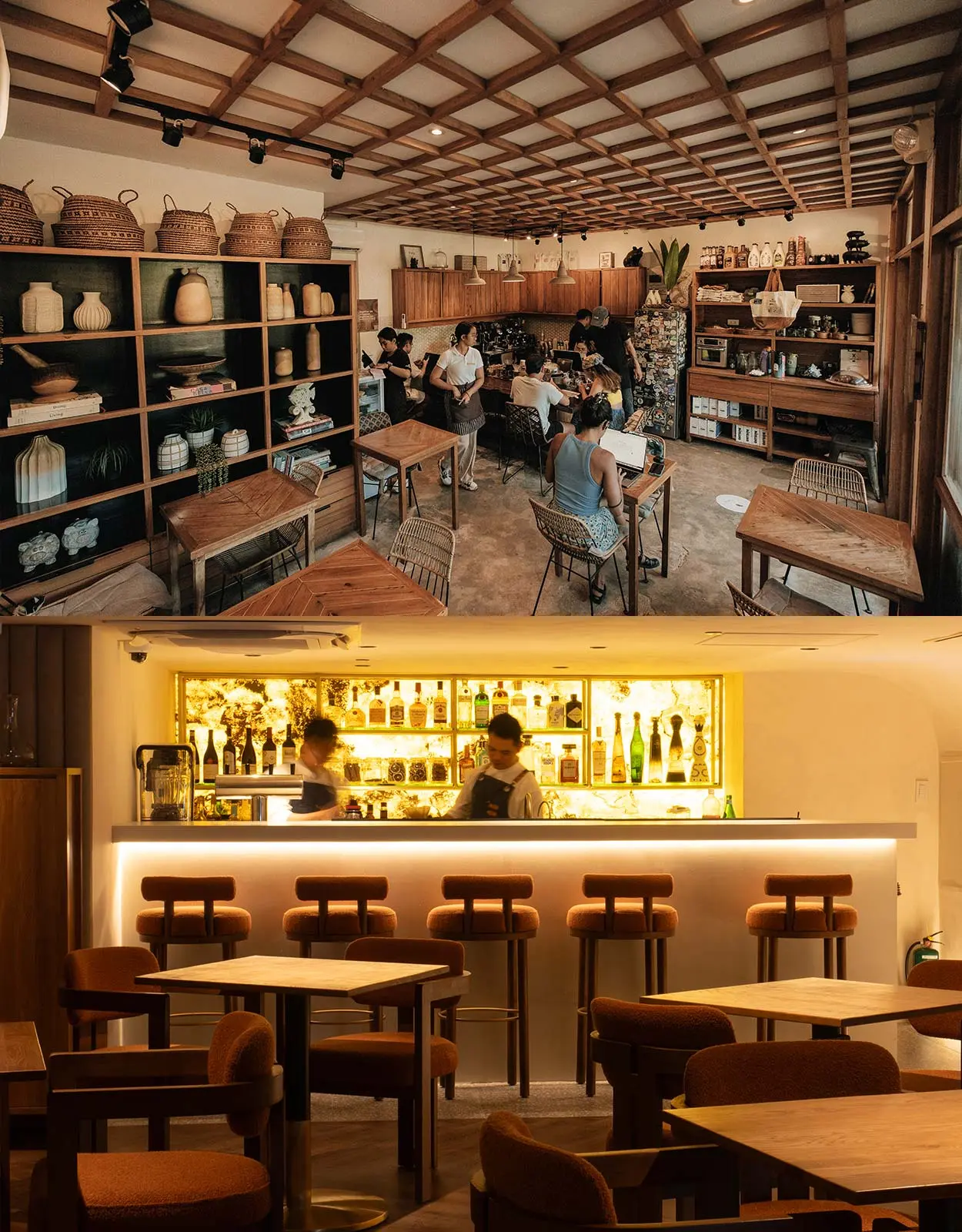
The Siargao Cafe Scene in 2019
Isabella recalls that there weren’t many places offering great coffee alongside inclusive, healthier food options when Spotted Pig first opened in Siargao. The first store was a simple home converted into a cafe.
“Around that time, our family was becoming more health-conscious,” she explains. “My dad, for example, follows a gluten-free diet, so we were very aware of how difficult it was to find dishes that catered to different dietary needs, especially in smaller island communities.”
This became their motivation for creating a menu with vegan, vegetarian, and gluten-free options, without compromising flavor or experience. The family committed to making everything in-house, including bread, pastries and sauces.
“Our specialty coffee really stood out at the time. We offered pour-overs, rotating beans, and different espresso profiles,” Isabella says. “We also made our breads and pastries in-house, which wasn’t very common on the island then.”
Aside from the items on the menu, what made Spotted Pig memorable was the genuine care poured into the small details and the service.
It didn’t take long before the cafe’s owners noticed they were getting a lot of regulars from Metro Manila, and the wheels started turning.
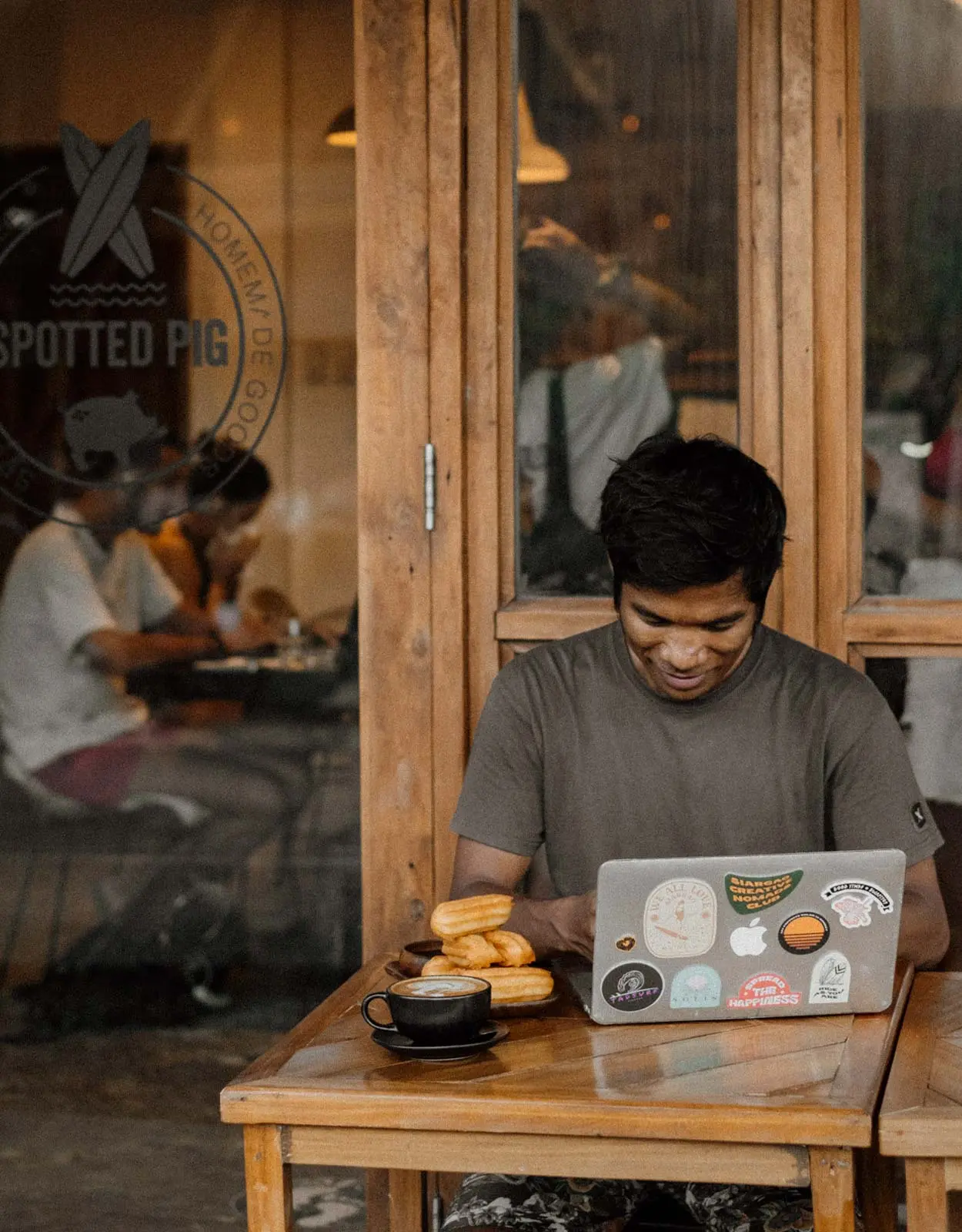
Growing in a Sustainable, Resilient Way
Isabella admits that her family hadn’t planned on expanding to another loction in the beginning. They wanted to focus firmly on Siargao. However, things changed when Typhoon Odette hit the island in 2021, affecting multiple homes and businesses, including Spotted Pig.
“It was a difficult time for the entire community. That experience pushed us to reflect on how we could grow in a more sustainable and resilient way,” Isabella says. “That’s when we seriously started considering branching out to other locations.”
Typhoon Odette’s impact on Siargao made the family realize the importance of diversifying and finding other ways to keep the business going.
Armed with the support that they received from regulars from Metro Manila, expanding to the city felt like the right next step to take.
Scouting for a New Location
Once they decided to expand to Metro Manila, figuring out exactly where in the metro was the next step. They wanted a space that didn’t feel overly commercial and preferred somewhere that still had heart, supported walkability, and showed a strong sense of community.
It’s because of these factors that they zoned in on Makati City, specifically Legazpi Village, which stood out for its mix of offices, residences, and homegrown businesses.
“It felt approachable, but still vibrant,” Alvarez says of Legazpi Village, where her brother, Anton, and his girlfriend, Isa, found their first space for Spotted Pig in Metro Manila.
“When we saw the spot along Esteban Street, we immediately knew it was the perfect place to start our journey in Manila,” she explains. “The area had a steady flow of locals and working professionals, the kind of crowd who appreciates good food, coffee, and thoughtfully designed spaces. Most importantly, it reminded us of the sense of connection we had back in Siargao.”
Isabella felt that Legazpi Village had the right balance of calm and city energy. Aside from having the structure, foot traffic, and opportunities that only Metro Manila could provide, it still encouraged a slower pace and a sense of community, even in the middle of the city.
Two Different Animals: Makati and Siargao
While Legazpi Village reminded the family of Siargao, they still noticed quite a few differences between the two locations. The disparity in pace was hard to ignore.
“In Siargao, we could keep things a bit more relaxed,” Isabella explains. “In Manila, we had to expand our menu, extend our hours, and be more structured overall. For example, we didn’t serve rice bowls in Siargao since we had them at our resort, but in Manila, people expected heartier options for lunch and dinner. We had to listen and adapt.”
The family introduced something new by adding a bar to their branch in Proscenium, Rockwell.
“The space had a beautiful high ceiling, so we added a mezzanine to make the most of it,” Isabella says. “It was our way of evolving the concept into something that could transition from daytime brunches to intimate evening gatherings, turning Spotted Pig into more of a day-to-night destination.”
Operating in Metro Manila also brought about shifts in business strategies. In the metro, Isabella and her family find themselves organizing more private events, pop-ups, and community-centered experiences, including creative collaborations with other brands.
“We’ve also worked on refining our operations, improving staff training, and developing systems that can handle the faster pace and higher volume in the city. We’ve introduced seasonal specials, built out our social media presence, and continue to find ways to engage with our community, both online and in person.”
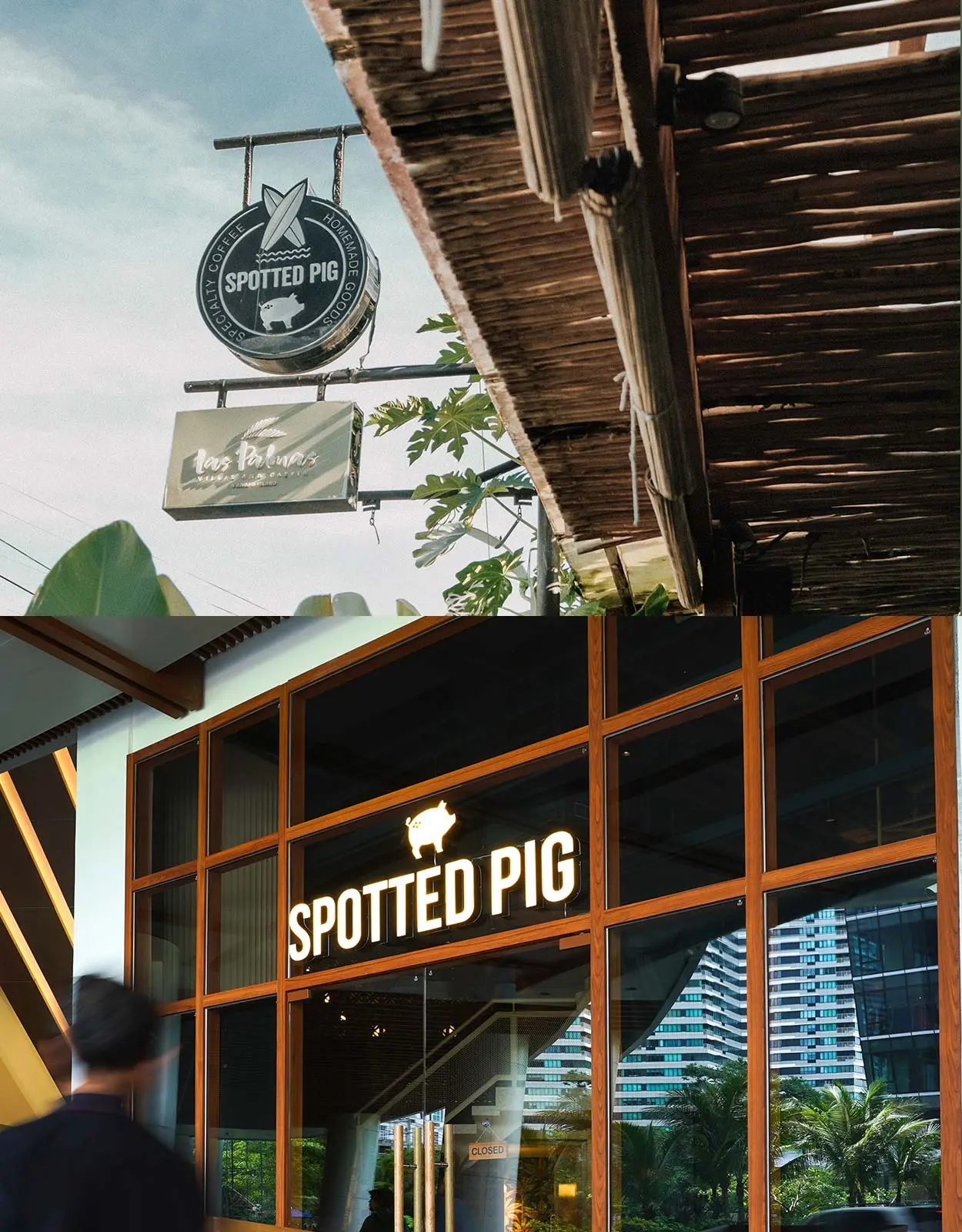
Is Metro Manila for Everyone?
While Isabella tends to recommend expanding to Manila to fellow entrepreneurs in the provinces, she cautions that it requires careful thought and preparation.
“Metro Manila offers a lot of potential, but it also comes with its own set of challenges. Costs are higher, expectations are greater, and the competition is nonstop,” the Spotted Pig owner points out. “That said, if you have a clear brand, a strong team, and you’re willing to learn quickly and adapt, it can be a great opportunity to grow and reach a wider market.”
Describing Metro Manila as fast-paced and competitive, she advises entrepreneurs from the provinces to build a team that can be trusted, adding, “You can’t be everywhere at once, and that’s okay.”
“At the same time, don’t lose what makes your brand special just to fit in,” Isabella cautions. “There’s a lot of pressure to adapt, but it’s possible to stay true to who you are while growing.”
“Most of all, be patient,” she adds. “Manila can be tough, but if you stay steady and consistent, the right people will find you.”
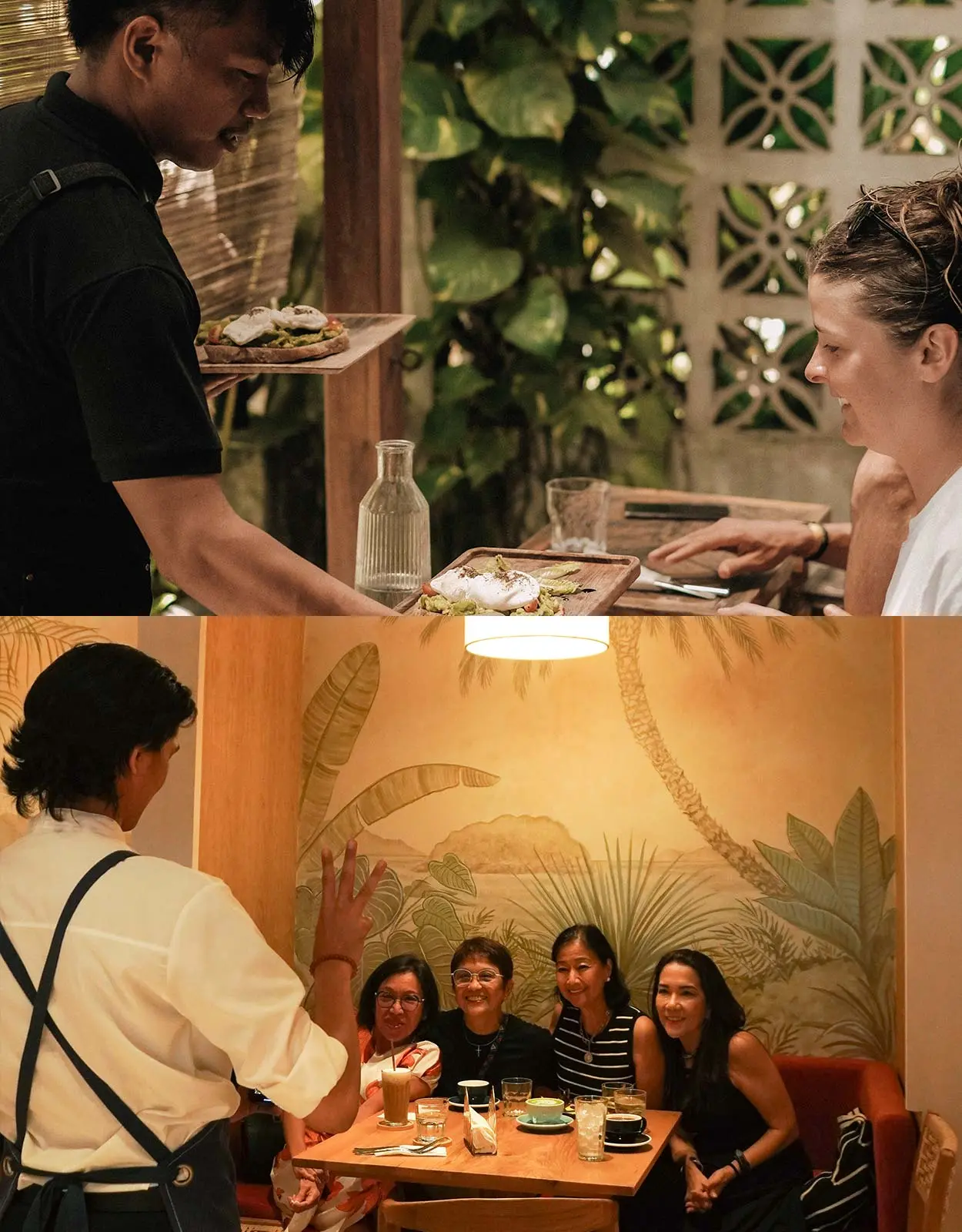
The Value of Listening
Isabella highlights the importance of taking the time to truly get to know a new place, whether it’s Metro Manila or a different location in another province. This can be done by visiting often, talking to locals, and paying close attention to how people there live, eat, and connect.
“Be present, not just at the start, but as the business grows and evolves,” she says. “What works in one branch might not automatically work in another, so it’s important to stay flexible while still holding on to your core values.”
Most importantly, Isabella recommends to trust one’s gut, but also take time to listen and observe. That balance, according to her, makes a big difference.
“Personally, I’ve learned so much just by listening to our loyal customers and to our staff,” she says. “They see things on the ground that I might miss, and their insights are often what help us improve the most.”
Spotted Pig continues to seek opportunities for growth-and possibly, further expansion—in the coming years. New potential branches and concepts are on the horizon.
Read more:
LOOK: This Coffee Start-up Gains PHP 2.2 Billion in Funding
How to Grow from a Coffee Cart to a Multi Million Business
Local Coffee Chain Founders Join the Endeavor Global Community



